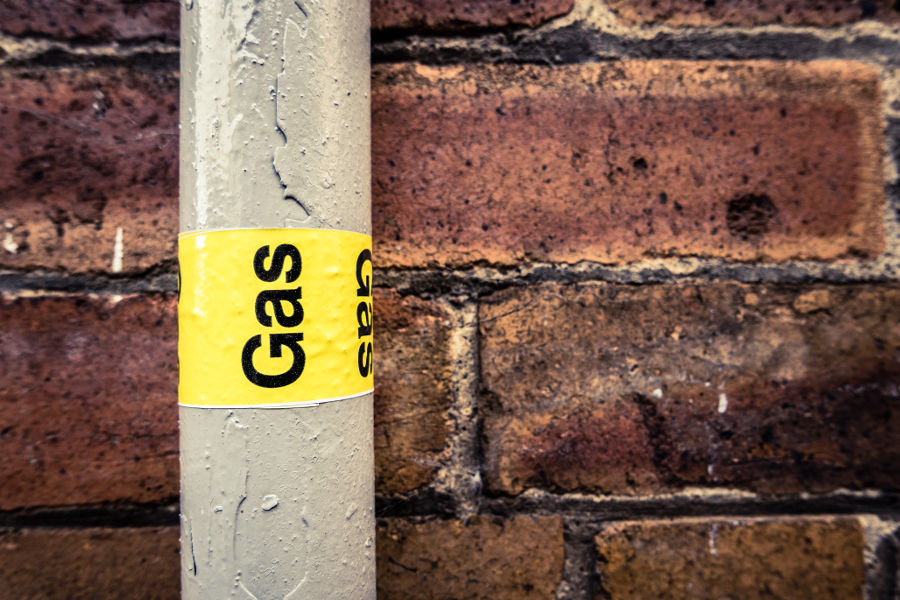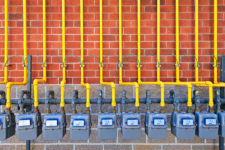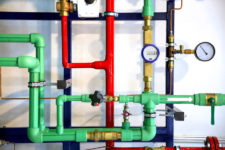UPDATE: Final rules have been promulgated for Local Law 152 with a huge change from the proposed rules – click into our new blog post to view the updated information.
Local Law 152 of 2016 regulated periodic inspections of gas piping systems. Nearly 2 years later, the DOB has released proposed rules on requirements going forward.
While these rules aren’t final, they’re likely close to it – read on to see how you’ll need to comply across your portfolio:
What is Local Law 152?
Local Law 152 of 2016 was part of a larger package of regulations concerning gas line safety. Read more about this group of local laws here.
Specifically, 152 requires periodic inspections for gas piping systems. Read the text of the full law here.
The DOB’s proposed rules clarify timing, filing requirements, and civil penalties for noncompliance. We’ll break them down section by section, but you can check out the rule text here.
Which buildings does the law apply to?
Building gas piping systems except for gas piping systems classified in occupancy group R-3 must be periodically inspected.
Per the code, occupancy group R-3 includes “buildings or portions thereof containing no more than 2 dwelling units,” like convents and monasteries with fewer than 20 occupants, group homes, and 1 & 2 family dwellings. If you’re unsure of your property classification, you can find your building’s occupancy group on the Certificate of Occupancy.
When are inspections due?
Inspections must be performed and submitted once every 5 years, with different due date cycles for each borough:
- January 1, 2019 – December 31, 2019: Staten Island
- January 1, 2020 – December 31, 2020: the Bronx
- January 1, 2021 – December 31, 2021: Manhattan
- January 1, 2022 – December 31, 2022: Queens
- January 1, 2023 – December 31, 2023: Brooklyn
As of January 1, 2024, due dates for periodic inspections will be the 5-year anniversary of the previous inspection (as indicated on the submitted certification). In addition, the inspection cannot be conducted more than 60 days prior to the due date.
For example, if you initially filed on March 1, 2020, you would have to file again by March 1, 2025. You would not be able to perform the inspection more than 60 days prior to March 1, 2025.
For new buildings (a building or any portion thereof approved for occupancy after 12/31/18), the gas piping inspection should be completed during the 10th year after the DOB issues a Certificate of Occupancy for the building (the rules make no distinction between temporary and final CO). Subsequent inspections would follow the above five-year rule – due five years after the first inspection was performed.
What if I don’t have a gas piping system?
If your building doesn’t have a gas piping system, you’ll still be required to comply with this law.
Per the proposed rules, buildings without systems have to file a Certification (from a registered design professional) stating the building contains no gas piping system.
Similarly to the 5-year inspection cycle, this certification would follow the borough calendar (2019 for Staten Island, 2020 for the Bronx, 2021 for Manhattan, 2022 for Queens, and 2023 for Brooklyn). The biggest difference is that the due date for this certification would remain December 31st of every fifth year, as there is no inspection date to key off of.
If your property previously submitted this certification then subsequently installed a gas piping system, the due date will be the 5-year anniversary of that certification. For example, if your building submitted a certification of no gas piping system on November 1, 2019, then installed a gas piping system in 2021, the first inspection due date for the system would be November 1, 2024.
What’s the inspection and submission process like?
Inspections must be conducted by a qualified gas piping system inspector on behalf of the building owner. Qualified inspectors are either licensed master plumbers or individuals working under the “direct and continuing” supervision of a licensed master plumber who has met additional training requirements.
The qualified vendor performs the inspection, then submits a certification of inspection to the owner no later than 30 days after the inspection date. The owner must submit the certification to the DOB (instructions to come at a later point) no later than 60 days after the inspection date. Corrections (if necessary), must be corrected and submitted within 120 days from the initial inspection date, though additional time can be requested if needed.
All reports & certifications must be kept on file for 10 years after the inspection date, and be made available to the department upon request.
What are the penalties for noncompliance?
Per the proposed rules:
A building owner who fails to submit a certification required to be submitted…on or before the filing due date specified…will be liable for a civil penalty of ten thousand dollars ($10,000).
When do the proposed rules become final?
City rules undergo a public comment period and hearing before a final review and promulgation.
The public hearing for these rules is scheduled for Wednesday, January 2, 2019 at 2 PM. You can attend the hearing at the DOB Building: 280 Broadway, 3rd Floor conference room. Guests are invited to give comments at the hearing and can sign up onsite.
If you’re interested in commenting before the hearing, you can do so via mail, email, fax, or the Rules website. Find out more about the comment process here.
Given the timing of this rule, it’s likely we’ll see final promulgation in late Winter/early Spring. Stay tuned to the SiteCompli blog for an update here!




